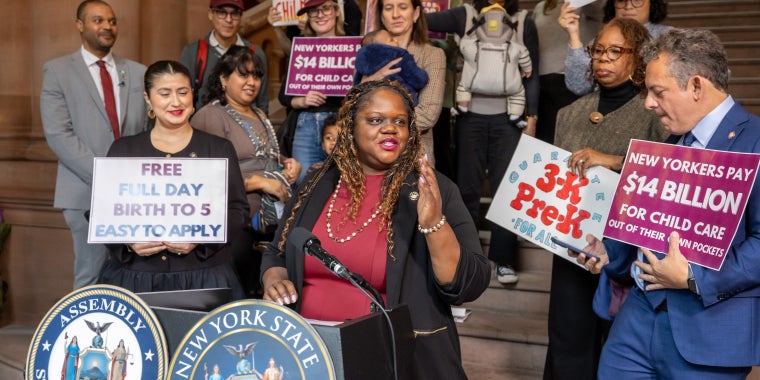
Senate Majority Passes Legislation to Make Prescription Drugs and Healthcare More Affordable and Accessible
May 21, 2025
-
ISSUE:
- Healthcare
- Affordability
(BINGHAMTON, NY) The Senate Democratic Majority today passed legislation to reduce the cost of prescription drugs, expand healthcare access, and promote health equity for patients in New York. The bills included in this package address critical gaps in drug pricing, patient coverage, and healthcare accessibility, ensuring that New Yorkers have more affordable options and greater transparency in their healthcare choices.
The proposed legislation includes the “New York State Affordable Drug Manufacturing Act.” If signed into law, New York would become the second state in the nation besides California to pursue its own drug manufacturing to lower costs and protect against short supplies. As prescription drug costs, even for generics, continue to rise out of reach for patients and insurers, this legislation directs the Department of Health to identify generic drugs that are high cost or susceptible to shortage for manufacturing partnerships. This legislation would allow New York to pursue its own drug manufacturing and partner with other states moving in this direction to both lower costs and protect against drug shortages.
“I’m proud to stand behind this vital legislative package that tackles the high cost of prescription drugs, expands access to care, and promotes health equity for every New Yorker,” said Senator Lea Webb. “These bills close long-standing gaps in drug pricing and patient coverage, ensuring families across our state have access to affordable, transparent, and reliable healthcare. This is about putting people first and delivering real, measurable change.”
The legislation passed on prescription and health affordability by the Senate Majority includes:
● New York State Affordable Drug Manufacturing Act: This bill, S.1618, sponsored by Senator Gustavo Rivera, would authorize the NYS Department of Health and its Commissioner to establish partnerships directly with drug manufacturers to help significantly lower the cost of drugs for consumers by helping secure more generic alternatives to prescription medications.
● Elderly Pharmaceutical Insurance coverage: This bill, S.355A, sponsored by Senator Gustavo Rivera, would allow individuals who have comparable coverage to a Medicare Part D plan to also be eligible for Elderly Pharmaceutical Insurance coverage (EPIC) if they otherwise qualify.
● Hospital Closure Notice: This bill, S.1226, sponsored by Senator Gustavo Rivera, requires public notice and public engagement when a general hospital seeks either to close entirely or to close a unit that provides maternity, mental health or substance use care.
● Increased Access to Addiction Treatment Centers: This bill, S.4950, sponsored by Senator Pete Harckham, requires OASAS to set a fee schedule for services provided at OASAS treatments and prohibits denial of treatment on the basis of a person's inability to pay.
● Disclosure of Pay-for-Delay Agreements: This bill, S.3203, sponsored by Senator Nathalia Fernandez, would require drug manufacturers to report all pay-for-delay agreements to the Attorney General’s Office (AG). The AG’s office would subsequently report to other state and outside entities and post the notice in a searchable database on its website. Brand-name drug manufacturers typically use these types of agreements to delay the entry of lower-cost generic drugs into the market.
● Child Health Plus Access: This bill, S.5812, sponsored by Senator Luis Sepulveda, prohibits health plans from requiring providers that accept Child Health Plus coverage to accept all other insurance products offered by that health plan in order to participate in the plan's network.
● Wholesale Prescription Drug Importation: This bill, S.371, sponsored by Senator James Skoufis, establishes a wholesale prescription drug importation program in New York State, in accordance with federal law, from countries with consumer safety on par with the U.S. drug supply chain system and where significant consumer cost savings are possible.
###
Share this Article or Press Release
Newsroom
Go to Newsroom
